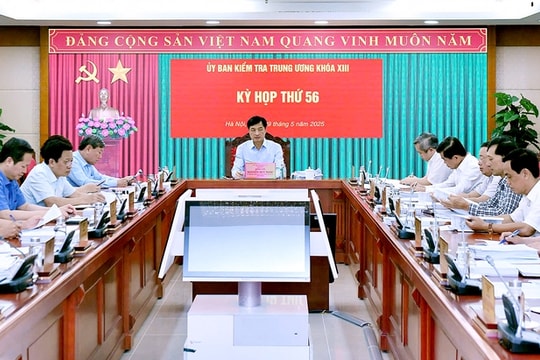"The Central Inspection Commission will inspect up to the district level"
To overcome the situation of “hot above, cold below”, the Central Inspection Commission will conduct inspections at all levels, down to the district level. This is a new feature in the inspection activities in 2018.
The year 2017 witnessed the strong and decisive participation of the Party's inspection sector. Following the conclusion of the Central Inspection Committee, a series of officials at all levels were disciplined or proposed to be disciplined for violations.
Speaking to VOV.VN reporter, Mr. Ha Quoc Tri, member of the Central Inspection Commission (CCIC), said that to achieve that result, the inspection agency has implemented a new approach, one that can be said to have never been done before.
All violations of party organizations were discovered during inspections.
PV:The thorough and decisive intervention of the Central Inspection Commission last year has brought to light many individuals and units that committed violations. Could you please tell us about the motivations to concretize strong actions to achieve the above results?
Mr. Ha Quoc Tri:Specifically, from the Resolution of the 12th Party Congress, the Central Inspection Commission has concretized it into programs and plans and assigned departments to develop plans for inspection with the requirement to determine specific targets, how many party members and party organizations must be inspected during the year when there are signs of violations.
At first, when this approach was presented to the Committee, there were many concerns and heated debates. Some opinions questioned why this was done when the signs were not yet clear, the signs were not yet clearly seen, how to determine the specific target, how many party members, how many party organizations, it felt like an imposition.
However, after debate, this approach was finally agreed upon, that targets must be set, and each unit assigned to the task must specify those targets. The recent results have shown that all cases and units have discovered violations by party organizations during inspections.
Along with the strict direction, supervision and thorough implementation of specific programs and plans of the units, last year, the Inspection Committee inspected 25 party members and 13 lower-level party organizations when there were signs of violations, detecting and handling 33 cases.
It can be affirmed that the implementation of the 12th Central Resolution 4 on Party building and rectification is a fundamental and important orientation, creating a turning point from the promulgation of regulations on inspection and supervision to institutionalization into action programs, all of which have had very strong changes.
 |
PV:In reality, many violations were only brought to light when the Central Inspection Commission got involved. How will the situation of “hot above, cold below” be handled in the coming time, sir?
Mr. Ha Quoc Tri:As I said above, since the implementation of the 12th Central Resolution 4 on Party building and rectification, an important turning point has been created in the promulgation of regulations on inspection and supervision.
Party member inspection is a task stipulated in the Party Charter, which must be done regularly in every term. Based on the requirements of each period and the task of Party building and rectification in each period, specific tasks have different requirements. In the later period, there may be more inspections, in the previous period, there may be less inspections. It is not that we do not dare to inspect, but because we are doing it according to requirements. Previously, the Central Inspection Commission was required to focus on a number of other cases in addition to inspecting and detecting signs of violations according to assigned tasks and functions.
Currently, the number of inspectors is only over 100. With such a large number of subjects, it is impossible to inspect all of them, so we have to select, consider, and inspect with focus, otherwise the inspection will become widespread and lack quality.
Speaking at a number of forums, General Secretary Nguyen Phu Trong pointed out that the inspection work in the past time was still in the state of "hot above, cold below", specifically, the Central Committee had done it but the provinces had not "moved", many provinces had not yet implemented it. Therefore, in 2018, the Central Inspection Commission determined to strengthen focused inspections, the subjects of inspection were still party members and party organizations; party members under the management of the Secretariat and the Politburo; party organizations directly under the Central Committee. The inspection field still focused on contents that are prone to violations such as personnel work, land management, basic construction investment, finance and banking...
In particular, to avoid the situation of “hot above, cold below”, the Central Inspection Commission will conduct inspections at different levels, possibly inspecting some units under the province such as districts, thereby drawing common experiences throughout the Party for widespread implementation. This will be a new feature in the inspection activities of 2018.
 |
Following the direction of Politburo member, Party Central Committee Secretary, standing member of the Secretariat, Chairman of the Central Inspection Committee Tran Quoc Vuong at the 2017 inspection and supervision summary conference, in the coming time, Inspection Committees at all levels will comprehensively and effectively deploy tasks according to the Party's regulations and the tasks of higher levels. Inspecting party organizations and party members when there are signs of violations. This is the key task of Inspection Committees at all levels. Improving the quality and effectiveness of inspections and supervisions, first of all, selecting the right inspection and supervision subjects, focusing on key issues that are prone to violations: personnel work, land management, capital construction investment, finance, equitization of state-owned enterprises, etc.
It is necessary to grasp the situation, promptly detect and decide to inspect when there are signs of violations, not to be lenient or avoid them, and through inspection, to clarify violations and decide to strictly enforce discipline. Localities and units must select typical cases for inspection and direct implementation to the end. When necessary, inspect at all levels and in a way that makes lower-level party organizations trust, be determined, and unanimously implement them throughout the party. Enhance the proactiveness and leadership in the Party's inspection and supervision work; thoroughly resolve petitions and complaints from party members and the people.
Solutions to prevent the illegal appointment of children of leaders.
PV:The series of officials being disciplined shows that there are still many loopholes in the personnel work. In your opinion, is there any way to “fill” these loopholes?
Mr. Ha Quoc Tri:Through the inspection work in the past time, a series of violations related to the performance of duties and tasks of cadres and party members were discovered. After the Central Inspection Commission carried out and announced the results in the mass media, the results were quite clear, which also clearly showed that there were still limitations in the cadre work.
Recently, the Central Organizing Committee has advised the Politburo and the Secretariat on a series of innovations regarding the decentralization of cadre management, appointment, and nomination of candidates. These regulations propose effective solutions to prevent the situation of appointing children of leaders against regulations and authority; regulations on the assignment and clear decentralization of responsibilities of the recommender, the responsibilities of the standing party organization, the standing committee, and the advisory body... These are the factors that create fundamental changes.
I do not hope that those regulations can prevent everything, but those measures will contribute to gradually limiting the negative aspects in personnel work. The mechanism of personnel work is related to many agencies. Talking about personnel work, there are many contents, from reception, rotation, planning, mobilization, appointment, there are some subjective steps.
Regulation 105 of the Politburo on decentralization of management, appointment, and introduction of candidates, in my opinion, is quite complete and systematic, clearly defining the responsibilities of each department to prevent shortcomings and limitations in personnel work that have not been specifically regulated before.
PV:Thank you, sir./.

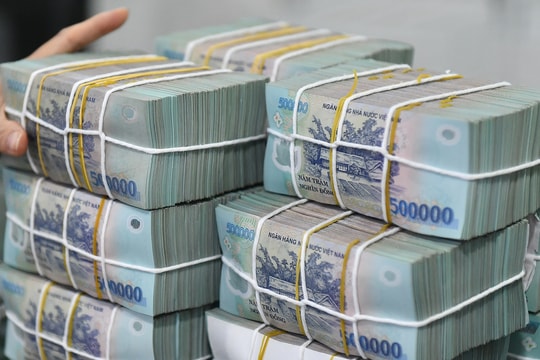

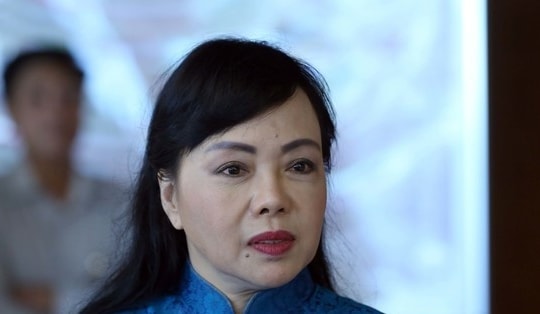
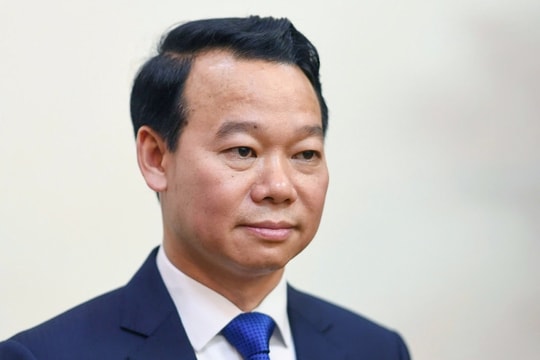
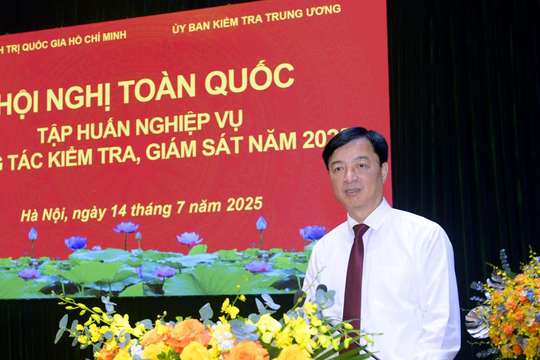
.jpg)
